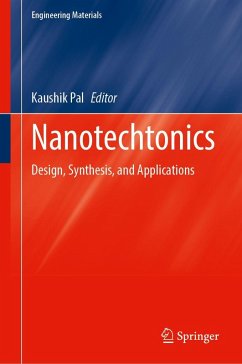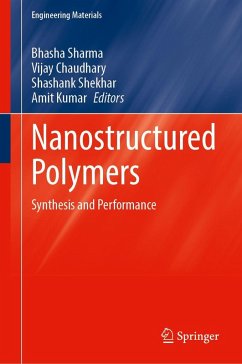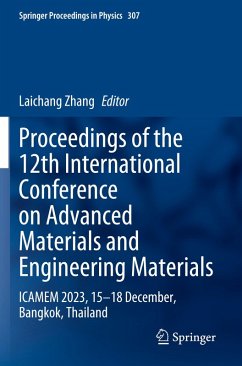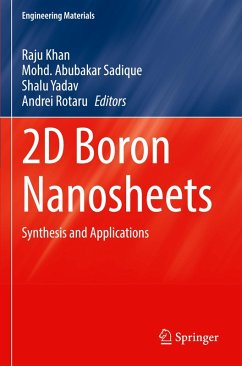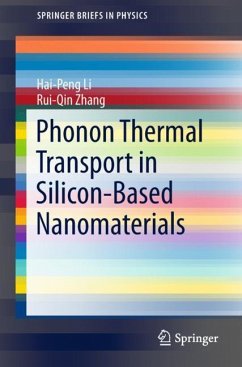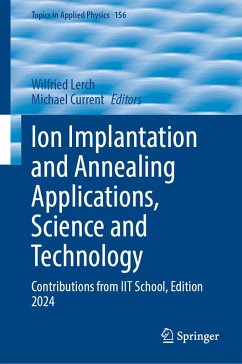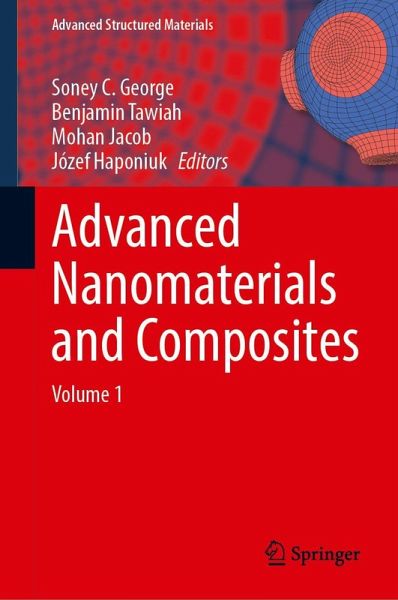
Advanced Nanomaterials and Composites
Volume 1
Herausgegeben: George, Soney C.; Tawiah, Benjamin; Jacob, Mohan; Haponiuk, Józef
Versandkostenfrei!
Versandfertig in 6-10 Tagen
136,99 €
inkl. MwSt.

PAYBACK Punkte
68 °P sammeln!
This book provides a comprehensive exploration of the latest advancements in nanomaterials research and applications in energy and electronics. The book provides an overview on the fundamentals, synthesis, and characterization techniques for nanomaterials, providing readers with the foundational knowledge necessary to understand the diverse range of materials available for energy and electronic applications. The critical areas of focus in volume 1 are the application of nanomaterials in renewable energy technologies, particularly in photovoltaic systems and energy storage devices. The book exp...
This book provides a comprehensive exploration of the latest advancements in nanomaterials research and applications in energy and electronics. The book provides an overview on the fundamentals, synthesis, and characterization techniques for nanomaterials, providing readers with the foundational knowledge necessary to understand the diverse range of materials available for energy and electronic applications. The critical areas of focus in volume 1 are the application of nanomaterials in renewable energy technologies, particularly in photovoltaic systems and energy storage devices. The book explores how nanostructured materials can enhance the efficiency of solar cells, leading to greater energy conversion rates and lower production costs. Additionally, the role of nanomaterials in batteries and supercapacitors is discussed, emphasizing their potential to improve energy density, charge/discharge rates, and overall lifespan. These advancements are vital for the transition to sustainable energy solutions and the reduction of reliance on fossil fuels.
In the area of electronics, the book addresses the integration of nanomaterials into electronic devices, focusing on their use in sensors, transistors, and flexible electronics. The unique electrical properties of nanomaterials enable the development of smaller, faster, and more efficient electronic components. Moreover, the potential for creating flexible and wearable electronic devices will be explored, highlighting the implications of these technologies for consumer electronics and healthcare applications.
In the area of electronics, the book addresses the integration of nanomaterials into electronic devices, focusing on their use in sensors, transistors, and flexible electronics. The unique electrical properties of nanomaterials enable the development of smaller, faster, and more efficient electronic components. Moreover, the potential for creating flexible and wearable electronic devices will be explored, highlighting the implications of these technologies for consumer electronics and healthcare applications.




